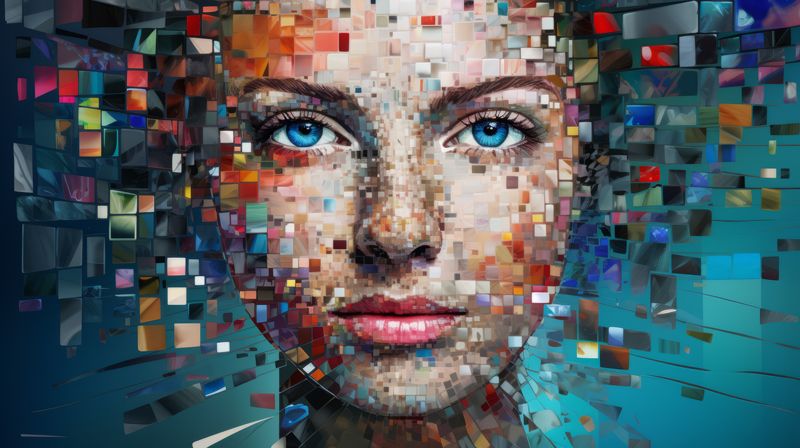When Deepfakes Get Real – Next Generation Voters Get Influenced
What’s that funny smell? Oh sorry, that’s just the impossible burger I just ordered, with a glass of lactose-free milk, of course.
In today’s world, we can get a deepfaked anything, which is great for vegans. Not so great for the strength of our democracy. Don’t worry, I am not saying that our democracy is under attack or that we are all doomed. The goal is to discuss the influence of deepfake technology on the new Gen Z voters for the upcoming presidential elections.
Deepfakes are not exactly nascent. With deepfakes, we have put a face of Paul Walker in “Fast and Furious 7” or a young Paul McCartney in the “Find My Way” music video.
Roughly six years ago, a video of President Barack Obama surfaced on the internet, bringing deepfake technology to light. That video, deepfaked by Jordan Peele, shows us exactly what the concern is for the upcoming election.
Thank you, Mr. Peele, I’ll take it from here.
Misinformation is ubiquitous, we’ve all seen it and believed it at some point in our lives. With the COVID-19 pandemic in full force, we saw a slew of disinformation as AI technology advanced.
But, AI Shm-AI, right? Who’s going to jeopardize a nationwide election, which determines who the next Chief Diplomat and Commander in Chief will be?
Turns out, many people are ready to risk the American Democracy for a few chuckles. We saw it in the last election, with a slew of misinformation being thrown around.
As far as the facts go, no stealing was done whatsoever in the previous election.
The Not-So-Techie Side
Before we get deep into the fakes (I know, I am a literary genius), we need to address the last presidential elections.
Election workers received death notes declaring mass shootings targeted toward them. The notes went as far as targeting their families. Many workers were pretty much forced out of their jobs to protect their loved ones. The situation is serious. but at least we know what are up against.
We know that the workers need to feel safer and need more legal protections against harassment. We need stronger cybersecurity measures and upgraded voting machines. Strong security is a must. Our voting centers are sacred to the democracy of this country, and it is a shame that these places aren’t secured like a billionaire’s mansion. Alright, maybe I’m getting a bit too excessive, but you get the point.
These attacks and breaches are all fueled by misinformation in the digital age. The good news is people are waking up and there is light.
Even in this digital age, some people still resort to information off the press. With the abundance of misinformation available, journalists must verify the authenticity of any news before inking it, keeping the public well-informed about their candidates – a massive responsibility, if you ask me.
With many different ethnic communities strewn about the country, journalists should also be responsible for communicating effectively. There is a saying that goes something like this, “With great diversity comes great language barriers.” Reporting in many languages is the only way we can make sure that everyone is well informed, and not just those proficient in English.
Dabbling With Tech
Social media is one of the largest streams of disinformation, circulating content all over the digital landscape.
As much as it might come off as censorship, there has to be a level of content moderation within social media platforms, discerning real comments from fake ones. Who knows, we might be looking at a possible scenario of AI vs. AI. Perhaps a bit farfetched but it would be one heck of a battle.
Another battle we face is with deepfake technology. I know I threw this word a lot. By definition, deepfakes are videos that use AI to analyze and replicate how one talks and looks, giving anyone the power to make anyone say or do anything.
Let me demonstrate.
It can be hilarious and really good fun, creating a video of your dad singing songs of your choice. Maybe you want Dad to be singing Taylor Swift’s song but don’t want him to actually sing it. Deepfake technology would allow for that to happen. Maybe you want Taylor Swift to sing a song but with your dad’s voice. Again, it is possible with deepfake technology.
But, it can be equally as scary and detrimental. For example, fabricating a video of public figures making false claims allows the spread of false information. It doesn’t stop there; the technology is even more readily available to the public.
So now, non-professionals can easily create whatever video they want and have it trending on social media within minutes. Just imagine getting caught in a lawsuit because some deepfake video suggests you claimed something when you really haven’t.
It seems like anyone can be a journalist these days. Some doing great work and actually reporting facts. Others, use deepfake technology to gain views. That is why media literacy is so crucial, especially with how realistic deepfakes have gotten over the years.
Misuse is seemingly so rampant with deepfake, that there seems to be a need for regulation to curb this.
Stern consequences for people who create such content and post it would help lower the increase in misinformation spread.
I would go as far as saying that the companies that enable such content to be posted should also be held accountable. Tech-driven media companies can increase efforts to identify deepfakes, but they choose not to because more eyeballs are the name of the game.
The Impact – Our Future
Attending many expert-led briefings and reading about this technology, I worry that my generation will have to face the potential consequences posed by deepfakes and AI to the election process.
The problem is that there is a bombardment of misinformation and users are racing against time to glance through their social media. Thanks FOMO.
As a result, many fail to understand the importance of verifying what they read and checking the authenticity of what is being published out there.
It comes down to increased media literacy and fact-checking efforts. Journalists, family group chats, election officials, and social media platforms must stay vigilant. Be leery of any new information surfacing on the internet.
The burden of responsibility should also be shared by social media platforms. Adopting a stronger content moderation policy can help reduce the spread of misinformation, at the expense of people arguing that it would be a violation of our First Amendment rights to shut up AI.
Is it though?
The New Kids on the Block
Quite literally the new kids on the block, except they aren’t really kids anymore. That’s right, Gen-Z’s are emerging from their teen years into adulthood, with the new voters dating back only to 2006. Get ready America, you have no idea what hit you.
Gen-Z voters are concerned with very specific issues, mostly concerning their own future. Abortion rights, gun violence prevention, climate action, and environmental protection, just to name a few. With empowerment oozing out of us, we are determined to create a better future, determined to take on the most pressing issues of our time.
Jessica Siles, the deputy press secretary at Voters of Tomorrow, emphasized, “young people are workers and taxpayers. I think a lot of times that gets kind of overlooked, but we’re extremely concerned about our ability to pay for a house and find a good job.”
As Gen-Z, we are smarter, more vigilant, faster, more driven, and more creative than any generation before us. The generation after us will thank us for our valiant effort in turning things for the better. But, I might be a tad bit biased.
If the last few elections or the global pandemic have taught us anything, dealing with misinformation is no walk in the park.
Unfortunately, we can’t pacify AI with a scoop of ice cream, which is why we need to keep our scoop fresh – a scoop lacking false information, inaccurate reporting, or artificial flavoring.


